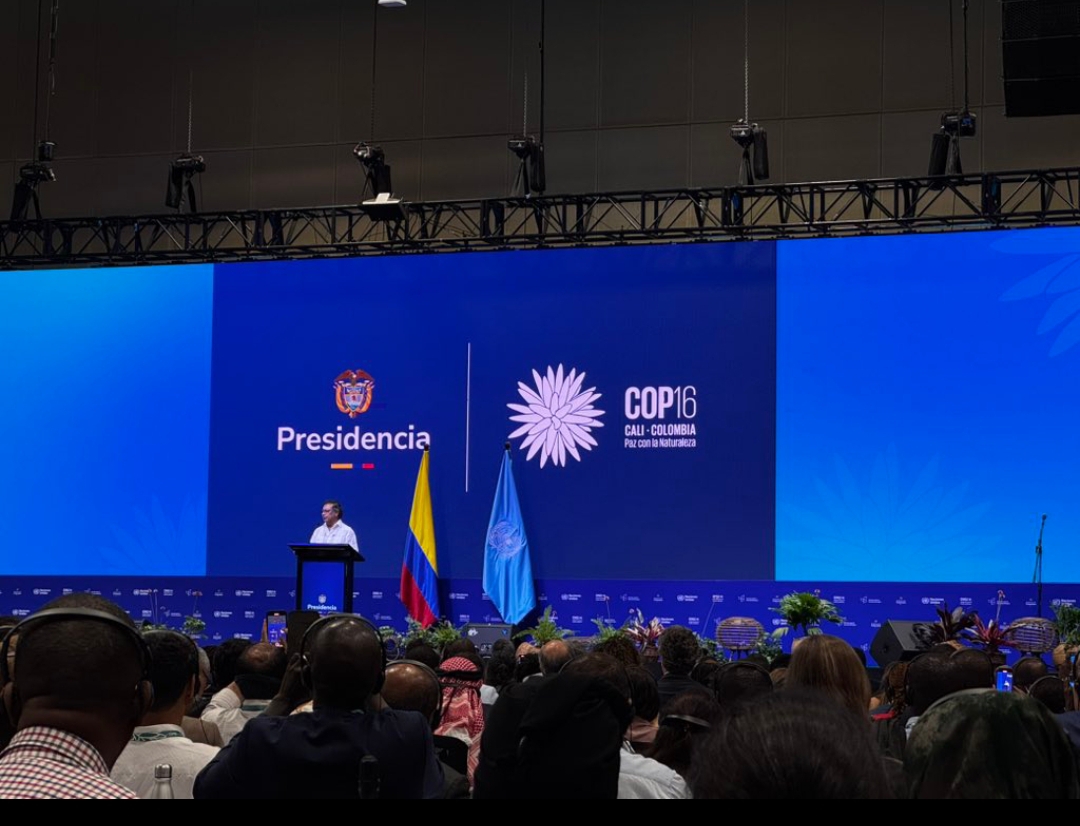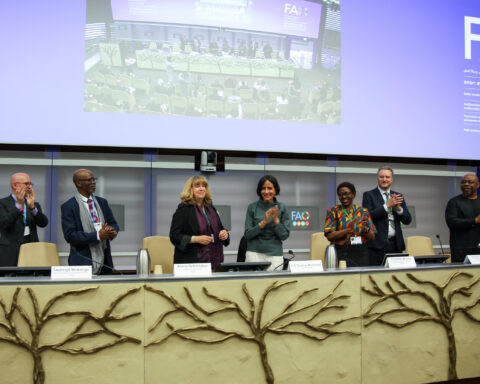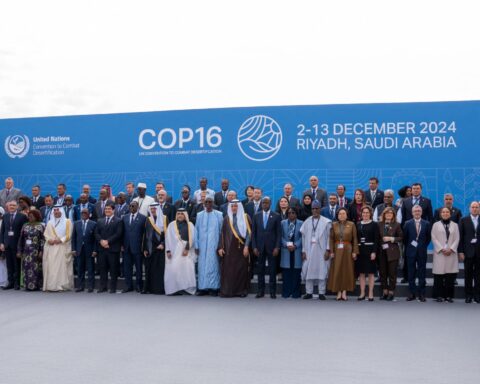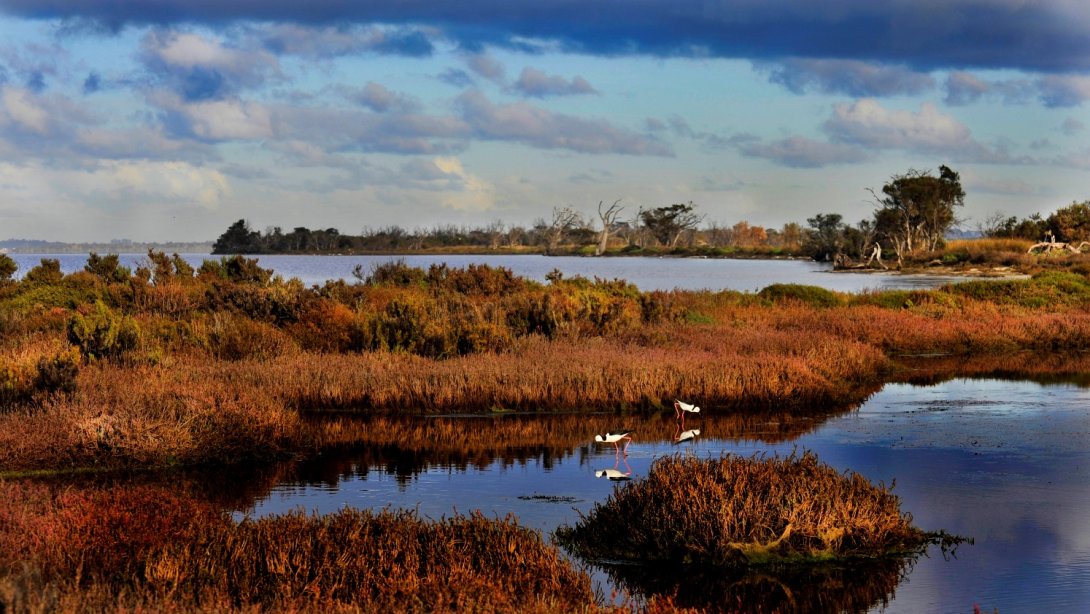The 16th Conference of the Parties to the Convention on Biological Diversity (COP 16) officially opened today in Cali, Colombia, bringing together over 23,000 delegates from across the world.
The summit is expected to mark a major milestone in the global effort to protect biodiversity and implement the ambitious Kunming-Montreal Global Biodiversity Framework (KMGBF), adopted during COP 15 in 2022.
The two-week event is seen as critical for pushing forward on biodiversity targets, including the protection of 30% of the world’s land and seas by 2030, reducing harmful subsidies, and restoring degraded ecosystems.
President Gustavo Petro of Colombia, United Nations Secretary-General António Guterres (via video), and Colombia’s Environment Minister, Susana Muhamad, the incoming President of COP 16, among the speakers spoke at the ceremonial opening.
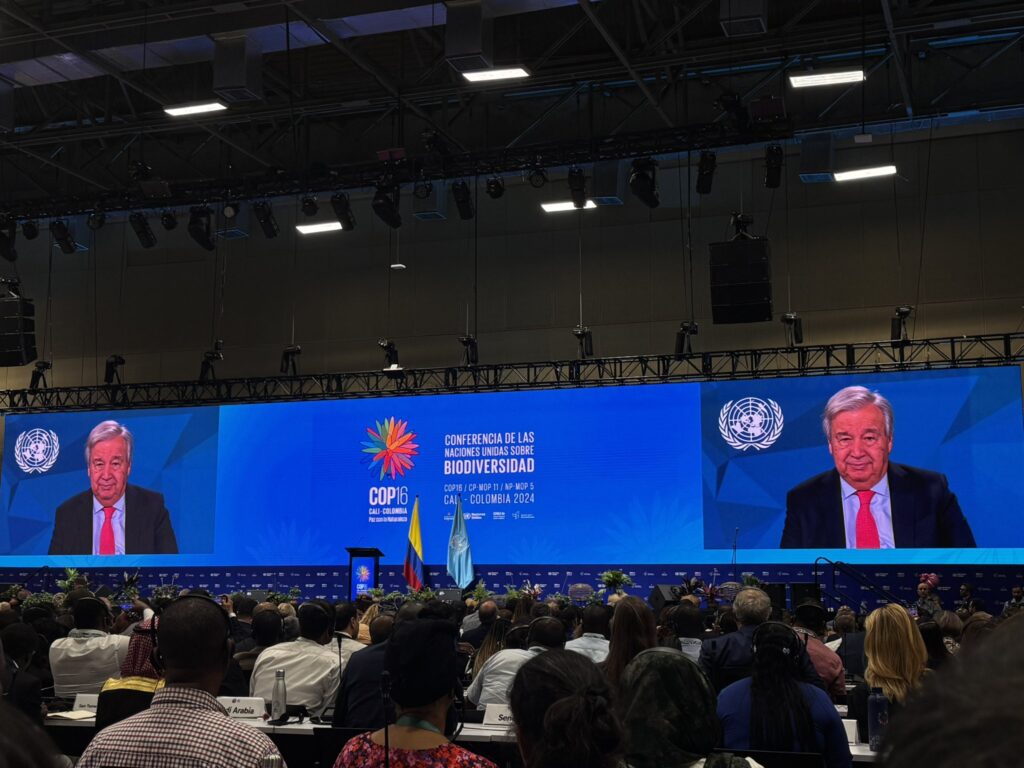
Countries are expected to demonstrate progress in implementing the KMGBF’s 23 targets for 2030, which are aimed at safeguarding global ecosystems, many of which are under increasing threat from human activities and climate change.
The discussions in Cali will focus on how to operationalize a multilateral mechanism for the fair and equitable sharing of benefits from Digital Sequence Information (DSI) on genetic resources, alongside negotiations on mobilizing additional resources for biodiversity protection.
African Interests in the Spotlight
For African countries, COP 16 presents an opportunity to press for more financial resources to protect the continent’s rich biodiversity, which is increasingly at risk due to deforestation, desertification, and climate change.
Many African nations are facing challenges in meeting their biodiversity targets due to insufficient funding and conflicting political priorities.
The KMGBF sets an ambitious target of mobilizing $200 billion annually for global biodiversity conservation by 2030, with $20 billion per year in official development assistance specifically earmarked for biodiversity protection.
According to the Organisation for Economic Co-operation and Development (OECD), the world is still 23% short of the 2025 target for biodiversity funding.
This shortfall has serious implications for Africa, where ecosystems provide essential services such as clean water, food security, and climate resilience.
With the continent bearing the brunt of biodiversity loss, African delegates will likely push for more financial commitments from developed nations and private sector partners.
The Global Biodiversity Framework Fund, created by the Global Environment Facility, and China’s Kunming Biodiversity Fund, launched last year, have made significant strides.
However, funding remains insufficient, with no private sector or philanthropic organizations committing the necessary funds to meet the $200 billion goal.
This funding gap threatens to derail global efforts to protect Earth’s ecosystems, including Africa’s biodiversity hotspots such as the Congo Basin and the East African Rift.
Biodiversity and Climate Change: Two Sides of the Same Coin
One of the key discussions at COP 16 will be the relationship between biodiversity and climate change.
As rising global temperatures and extreme weather events intensify, ecosystems that provide resilience against climate impacts are rapidly deteriorating.
This is a critical concern for Africa, where climate change exacerbates biodiversity loss, leading to further desertification, food insecurity, and the displacement of communities.
Delegates at COP 16 will consider how biodiversity conservation and climate mitigation strategies can be better integrated.
Ecosystem-based approaches, such as reforestation and the protection of wetlands, are gaining traction as solutions to enhance climate resilience.
However, African nations will need significant financial and technical support to implement these strategies effectively.
Health and Biodiversity Nexus
Another crucial aspect of the discussions will be the link between biodiversity and health. Africa, which has seen a rise in zoonotic diseases such as Ebola Monkey pox stands to benefit from a global action plan that integrates biodiversity protection into national health policies.
Healthy ecosystems not only prevent the spread of diseases but also support human well-being by providing clean air, water, and medicinal resources.
With Africa being home to some of the world’s most valuable biodiversity, the continent’s participation in COP 16 is essential for ensuring that global efforts to protect nature are inclusive and adequately resourced.
As the conference unfolds, the world will watch closely to see how Africa’s biodiversity and climate challenges are addressed in this critical global summit.
By Dare Akogun


